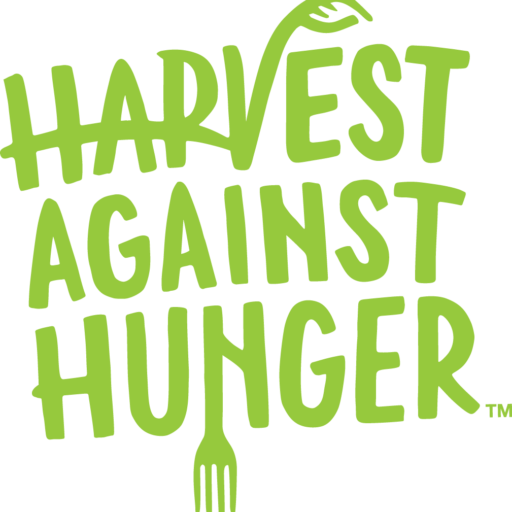
IRC New Roots Program Partners with Volunteers to Prepare St. James Community Garden
22 Apr 2020, by Admin in Harvest Blog, Harvest VISTA, Washington state, International Rescue CommitteeHarvest VISTA Anastasia Ryseff serves at the International Rescue Committee (IRC) New Roots Program. New Roots at the IRC Seattle works with refugee, immigrant and vulnerable communities in South King County to improve food access and community wellness. New Roots provides individuals and families space to grow their own food at four different community gardens, while also offering community programs such as English classes, yoga, stress reduction groups, and student summer internships. New Roots also runs two subsidized farm stands that sell produce grown by clients in the gardens. For those who need or want assistance, New Roots offers trainings and workshops on gardening skills and guidance on how to navigate the Pacific Northwest growing climate.
In the heart of the rapidly expanding city of Kent, new roots are being planted. On a surprisingly sunny Saturday during the last weekend of February 2020, Harvest Against Hunger VISTA Anastasia who serves with the IRC New Roots Program in Seattle led the organization of a volunteer work party. The team was thrilled to partner with Construction for Change and LDS Issaquah to build a protective fence around the new garden plots and prepare the garden beds for the imminent growing season.
The International Rescue Committee recently opened its fourth community garden for refugee and immigrant farmers. The garden, located at St. James Episcopal Church and funded by King Conservation District, opened its arms to the community in August 2019 after nearly six months of site preparation.
Despite opening late in the season, several committed refugee growers got straight to work at the garden, planting rows of mustard greens in 6 of the 35 available plots.
One such dedicated gardener is Gadul, a refugee from Bhutan who has grown food his whole life. “Back in Nepal and Bhutan we would grow food year-round,” he remembers. “We garden at St. James because we can grow year-round there too. The garden never closes.”
Gadul prefers to grow food for himself and his family, rather than buy it at the store. “When you are putting in work to grow food for you and your family, the food is better and fresher, “he says. His plot is one of the six filled with mustard greens, known as “saag” in his native Nepali language. He is looking forward to growing potatoes as well in the warmer months.

South side of garden post Fence building work party St. James Episcopal Church (2.29.20).

Group photo- volunteers (LDS Issaquah, Construction for Change and others) Fence Building Work Party at St. James Episcopal Church in Kent (2.29.20).
The refugee growers are not the only people who benefit. The Reverend Joyce Parry-Moore has high hopes for building community and strong relationships around the garden. Known in her church community as “Mother Joyce” or “MoJo”, the Reverend strongly believes in advocating for refugee and immigrant communities, which are common among Kent’s diverse population.
Since coming to St. James in 2017, Mother Joyce has continued the church’s longstanding commitment to community organizing around immigrant issues. “The issue of immigrant quality of life is close to my heart; we are a nation of immigrants, after all,” she says. She also believes in the power of connection to land and pursuing food justice through farming. “People are able to heal faster and more sustainably when working on the land,” Mother Joyce says. The community garden provides space for refugee and immigrant communities in Kent to grow food and meet their needs by connecting to land.
When asked about her hopes for the garden, Mother Joyce is excited. “I hope the garden will become a place where people can connect across cultures, as well as to the earth and their own histories,” she says.
The turnout for the event exceeded New Root’s expectations allowing for a very productive day with volunteers harmoniously working alongside gardeners. The 50 volunteers built over 400 feet of wire mesh fencing, tilled soil, cleared pathways and put down wood chips.

Four refugee gardeners from Bhutan get to work in their new garden plots at the St. James community garden 2019.

Volunteers and gardener (right to left: Adam, Glen and Gadul) clearing pathway at South side garden at St. James Episcopal Church in Kent (2.29.20).
The land is now ready for the experienced refugee and immigrant farmers to plant seeds and grow a bountiful harvest of crops. The New Roots team is so grateful to the volunteer workforce that came to help make their dreams of cross-cultural connection and improved food access among South King County’s most vulnerable populations a reality.
While the gardens have stayed open during the “Stay Home, Stay Healthy” order, New Roots is taking extra precautions to keep the gardeners and community safe. New Roots canceled all classes, workshops and in-person meetings beginning March 1st, however the gardens remain open as they provide gardeners access to fresh air and produce, which is a necessity during these tough times. The gardeners rely on the vegetables they grow to feed their families and for many, trips to the grocery store put their lives in danger.

LDS Issaquah Middle Schoolers throwing wood chips into wheelbarrow (2.29.20).

Volunteers building wire mesh fencing to protect new gardens at St. James Episcopal Church, Kent (2.29.20).

LDS Issaquah middle school boys holding rocks that they were working to remove from the garden plots at St. James Episcopal Church, Kent, WA. (2.29.20).


